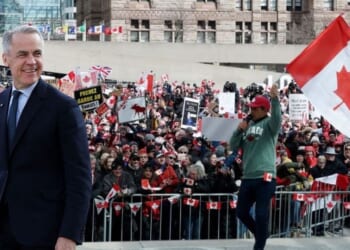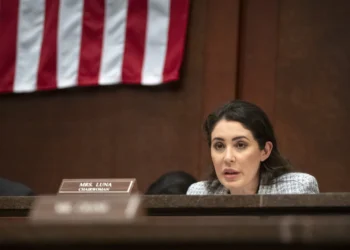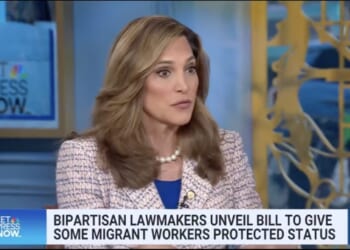Wall Street experienced a record-breaking revenue surge in the year’s second quarter, investment bank Goldman Sachs announced Wednesday morning, following the market uncertainty caused by President Donald Trump’s “Liberation Day” tariffs in April.
Goldman Sachs’s trading revenue for the second quarter was $4.3 billion, $600 million higher than expectations and $100 million above the first quarter’s total, which was also a record. The company’s total revenue jumped 15% to $14.58 billion, a billion dollars more than what analysts expected. A similar upward trend was seen in the bank’s profit, which rose 22% to $3.72 billion.
“The economy and markets are generally responding positively to the evolving policy environment,” Goldman Sachs CEO David Solomon said. “But as developments rarely unfold in a straight line, we remain very focused on risk management.”
JPMorgan Chase, Citigroup, and Morgan Stanley also reported sizable increases in trading revenue, indicating that Wall Street has benefited from the tariff upheaval, despite market volatility.
After Trump’s tariffs took effect in early April, the stock market index S&P 500 took a drastic dive within minutes. Once an erroneous report indicated Trump was considering a 90-day pause on his “Liberation Day” tariffs, the S&P 500 added $3 trillion within 10 minutes. The White House quickly denied the report, calling it “wrong” and “fake news.”
Once traders learned of the denial, the S&P 500 lost $2.5 trillion in five minutes. A similar pattern was seen in the Nasdaq and Dow Jones.
Soon after the higher “Liberation Day” tariffs took effect, Trump implemented a 90-day pause that ended earlier this month. The pause was made to allow time for foreign trading partners to negotiate with the United States on trade deals.
Trump has so far announced trade deals with the United Kingdom, China, Vietnam, and Indonesia.
The president’s pattern of threatening tariffs and then pausing them or extending the deadline to negotiate has caught the attention of traders, who have created the “Trump always chickens out,” or TACO, strategy to capitalize on it.
Trump disputed TACO, which holds that Wall Street should “buy the dip” following immediate panic caused by a new tariff announcement, considering the perception that Trump will back off on his tariff threats. Trump said his strategy is simply a negotiation tactic.
“We have the hottest country anywhere in the world … Six months ago, this country was stone-cold dead. We had a dead country. We had a country, people didn’t think it was going to survive, and you ask a nasty question like that,” he told reporters in May.
EU DELAYING RETALIATORY TARIFFS AHEAD OF TRUMP’S AUG. 1 DEADLINE
“It’s called negotiation. You set a number. And if you go down, if I set a ridiculous high number and I go down a little bit, a little bit, they want me to hold that number, 145% tariff. Even I said, ‘Man, that really got up,’” Trump said, adding he brought down the said tariff rate after negotiations.
Trump is proceeding with implementing his next phase of tariffs on Aug. 1, including a 30% tariff imposed on the European Union. The 27-member bloc delayed its retaliatory tariffs this week amid negotiations with the U.S. in the hopes of reaching a trade deal before the new tariff deadline.















